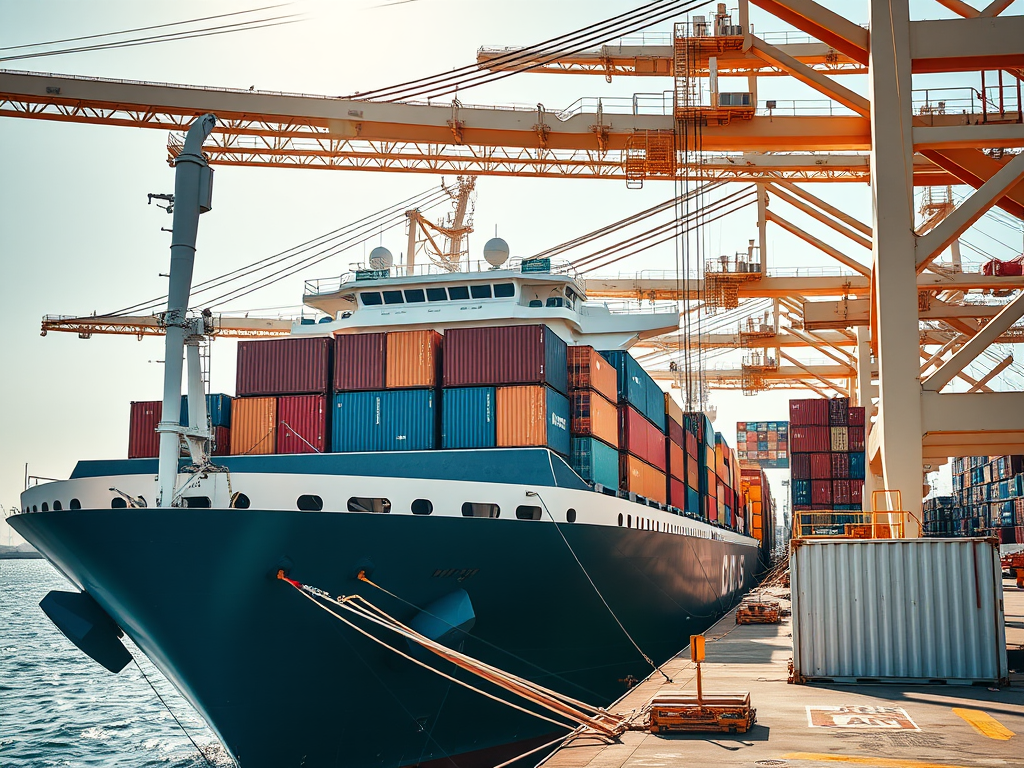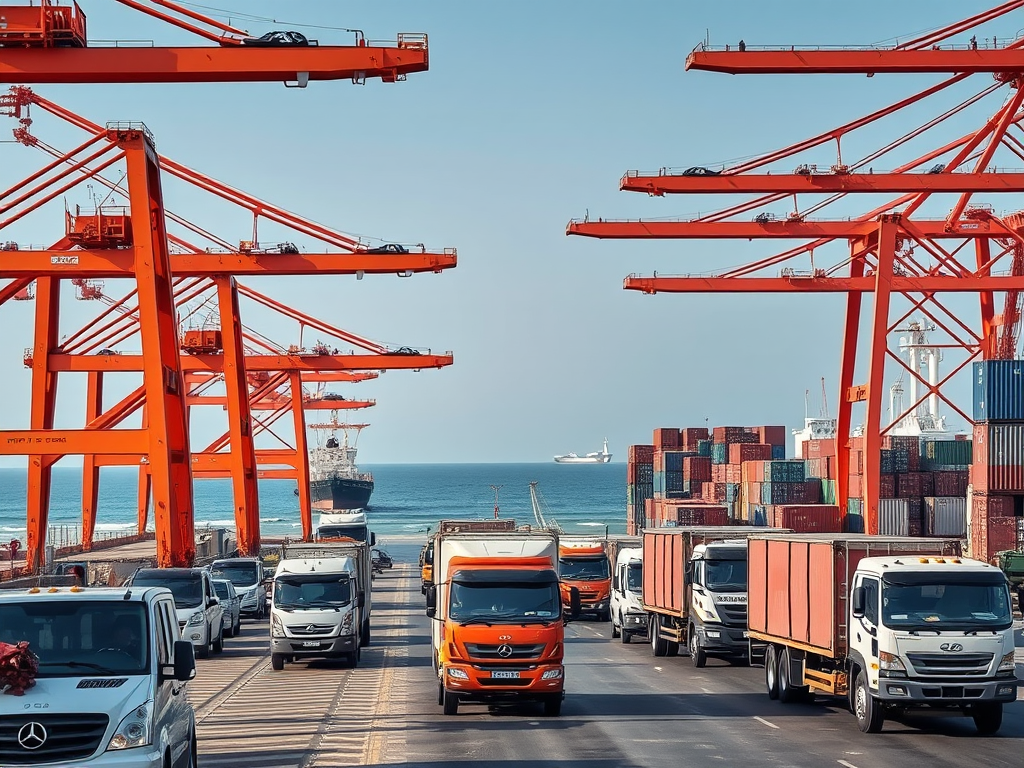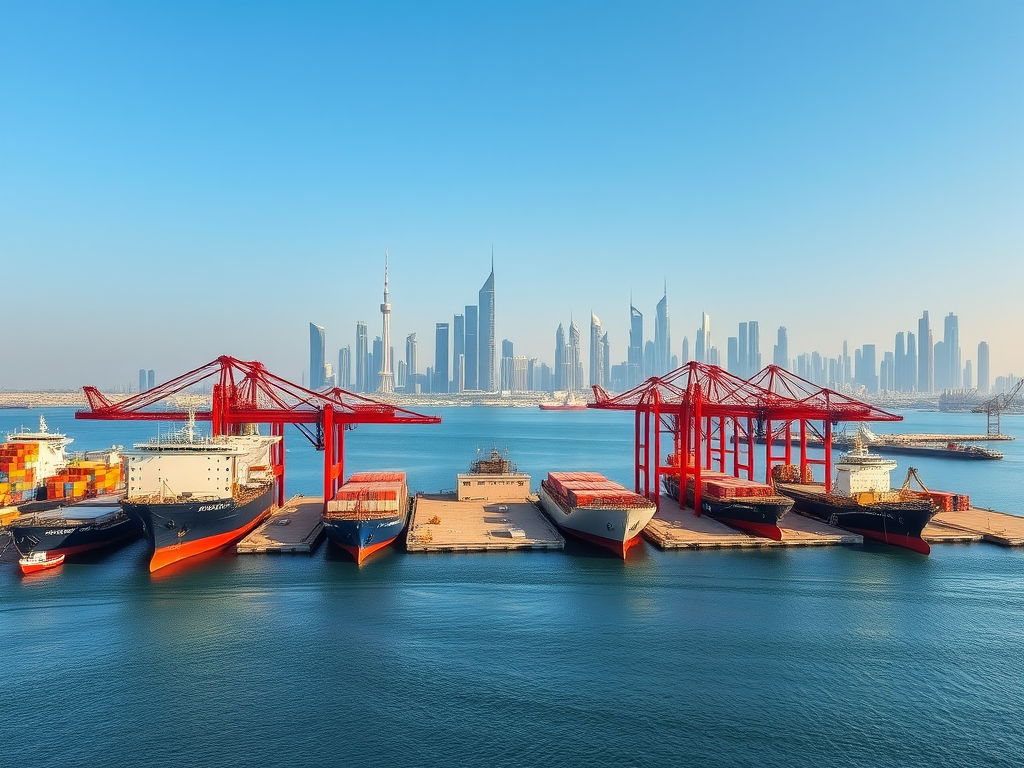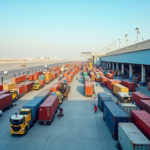Dubai’s ports serve as a critical hub in global trade, facilitating immense volumes of cargo movement and fostering economic growth. With strategic positioning along key maritime routes, Dubai stands at the crossroads of international trade, connecting East and West. The city is equipped with state-of-the-art facilities and infrastructure that support the seamless operation of maritime logistics. This article delves into how Dubai’s ports impact global trade dynamics, exploring their functionalities, features, and contributions to the world economy.
Strategic Location and Connectivity

Dubai’s ports possess a prime geographical location that enhances their role in global trade. Positioned along the Arabian Gulf, the ports are strategically situated near essential shipping lanes that facilitate trade between continents. This pivotal location allows vessels from various countries to easily navigate through the region, making it a preferred transit point for global shipping companies. Moreover, the well-established logistics and transportation networks in Dubai ensure swift connectivity to nearly every corner of the world. Key attributes include:
- Accessibility: Dubai’s ports boast excellent access to international shipping routes.
- Intermodal transport: Seamless integrations with air and land transport systems enhance cargo movement.
- Proximity to emerging markets: Serving as a gateway to fast-growing markets in the Middle East, Africa, and Asia.
State-of-the-Art Infrastructure

The infrastructure at Dubai’s ports is designed for efficiency, accommodating various types of cargo and shipping methods. Jebel Ali Port, one of the largest man-made harbors globally, features cutting-edge technology and facilities that streamline loading and unloading processes. Key characteristics of the ports’ infrastructure include:
- Crane systems: Advanced crane systems that enhance cargo handling speed.
- Storage Facilities: Expansive and modern warehousing capabilities for easy inventory management.
- Customs Processes: Efficient customs processes that reduce the average turnaround time for vessels.
These features not only ensure rapid service but also attract international businesses to establish their logistics and distribution hubs within Dubai, reinforcing its position as a pivotal player in global trade.
Economic Impact and Trade Growth
The economic implications of Dubai’s ports are profound, significantly contributing to the Emirate’s GDP and job creation. The robust growth of global maritime trade has positioned Dubai as a leader in the logistics sector, fostering a vibrant economy that thrives on import and export activities. Consequently, several factors contribute to this trade growth:
- Foreign Direct Investment: The thriving port system attracts substantial foreign investment.
- Trade Agreements: Dubai has forged several trade partnerships that encourage international exchange.
- Regional Distribution Hub: The ports serve as a vital re-export center for goods heading to surrounding markets.
With these advantages, Dubai has expanded its trade volume significantly over the years, becoming a key player in the global marketplace.
In recognition of the growing importance of sustainability, Dubai’s ports are adopting eco-friendly practices to mitigate environmental impact. The government has invested in initiatives aimed at reducing emissions and promoting green technologies within port operations. Some of the key sustainable approaches include:
- Energy-efficient equipment: Utilizing energy-efficient cranes and vehicles to minimize carbon footprint.
- Waste management systems: Implementing effective waste management strategies.
- Incentives for green shipping: Offering incentives to shipping companies that incorporate green technologies.
These environmentally focused initiatives not only help preserve natural resources but also position Dubai as a responsible player in global trade.
Challenges and Future Outlook
Despite its success, Dubai’s ports face various challenges that could impact their future growth. Increased competition from ports in neighboring countries, evolving trade regulations, and potential geopolitical tensions can pose significant hurdles. However, Dubai’s leadership is keen on addressing these challenges through continuous infrastructure development, investment in technology, and enhancing operational efficiency. In summary, key strategies for the future include:
- Infrastructure Expansion: Continuous expansion and modernization of port facilities.
- Embracing Technological Advancements: Leveraging automation and digitalization to enhance service.
- Diverse Trade Partnerships: Expanding trade agreements to include more global partners.
By proactively addressing these challenges, Dubai’s ports can maintain their significant role in global trade and continue to foster economic growth.
Conclusion
Dubai’s ports play an integral role in the fabric of global trade, characterized by their strategic location, advanced infrastructure, and significant economic impact. As hubs of international logistics, they not only facilitate the flow of goods but also promote sustainability and adaptability within the ever-evolving trade landscape. While challenges remain, Dubai is poised to continue its influence in global trade for many years to come.
Frequently Asked Questions
1. What is the largest port in Dubai?
The largest port in Dubai is Jebel Ali Port, renowned for its massive capacity and advanced facilities that support international cargo operations.
2. How do Dubai’s ports contribute to the local economy?
Dubai’s ports significantly contribute to the local economy through job creation, tax revenues, and fostering trade relationships, enhancing overall economic growth.
3. What sustainability initiatives are implemented at Dubai’s ports?
Sustainability initiatives in Dubai’s ports include energy-efficient equipment, waste management systems, and incentives for green technologies in shipping practices.
4. How does Dubai’s strategic location benefit global trade?
Dubai’s strategic location offers direct access to key shipping routes, making it an ideal transit hub for global shipping companies connecting East and West.
5. What are the future plans for Dubai’s ports?
Future plans include expanding infrastructure, embracing technology, and enhancing trade partnerships to maintain Dubai’s competitive edge in global trade.

